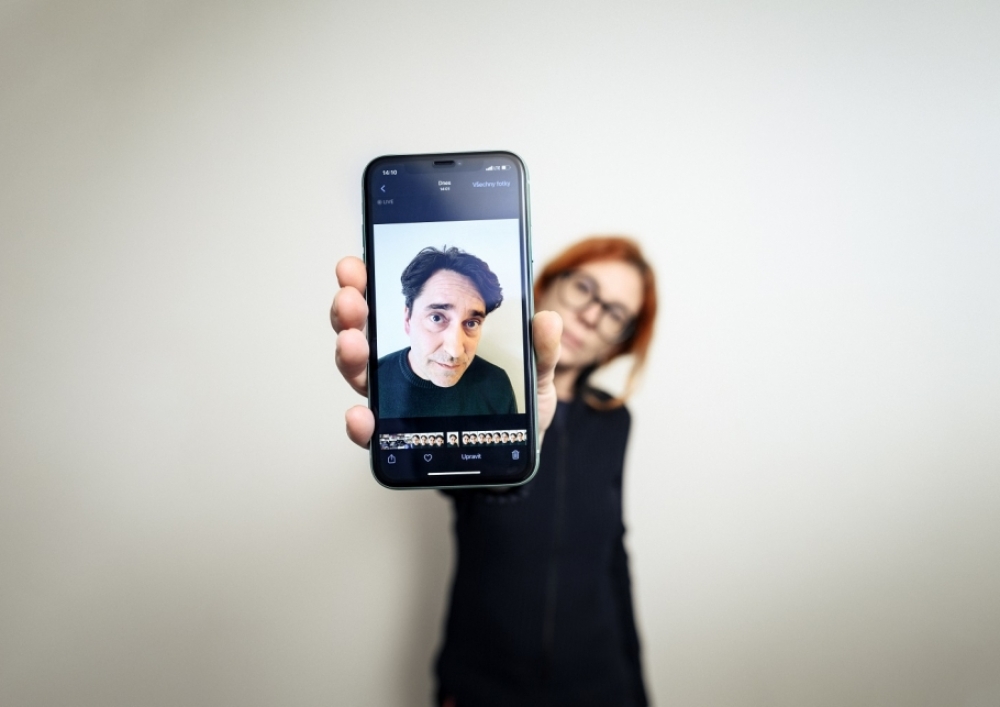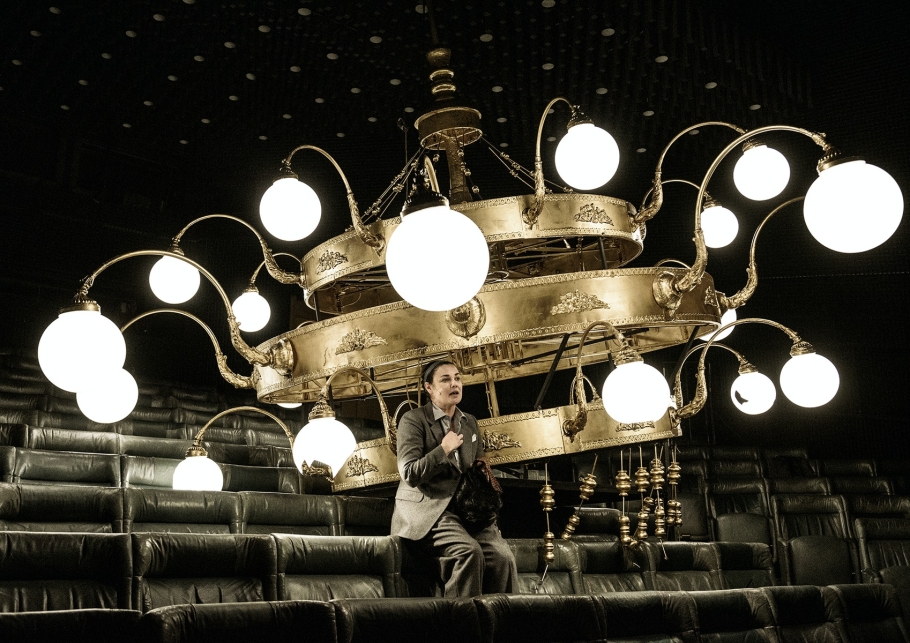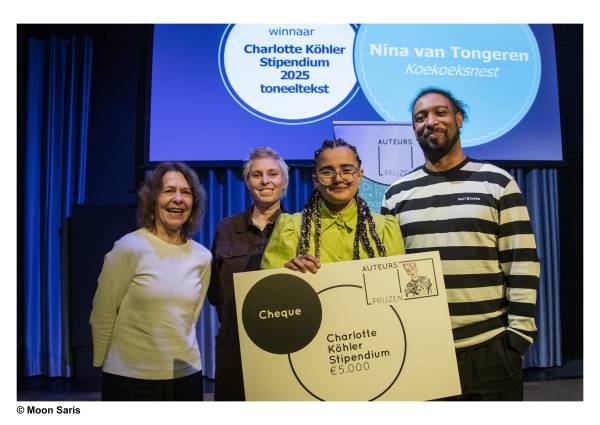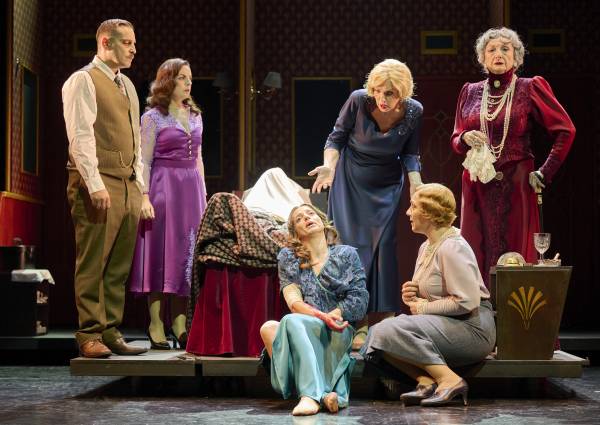For the past 6 months, much like across the rest of Europe, shows at the National Theatre Prague have been cancelled.
In response, the theatre has been adapting work to be seen at home. On the one hand, projects become bigger: a documentary theatre performance, intended for the stage with <10 actors, suddenly became an interactive ensemble piece with 34 people.
But perhaps the most interesting innovation has been their push to go smaller -- for shows to be delivered through headphones, by one actor, to an audience of two, at home. Or in the case of the collaboration with Dutch-based ensemble Building Conversation, removing the actor altogether and facilitating creative encounters between audience members.
We spoke to Chief Dramaturg Marta Ljubkova to hear about this process.
Why did National Theatre Prague get interested in the idea of ‘theatre outside of theatre’?
“I don’t know if theatre outside theatre is the correct term, or the best one. But we tried to have this as a dramaturgical line because we decided not to have any openings at the beginning of the season. We kept closing and cancelling and changing the schedule and it was obvious that nothing would happen as normal. We managed to open one performance at the beginning of September, play it twice or three times, and then the theatres were closed, and somebody was ill, or in a quarantine, so we thought this was a system we couldn’t keep for the whole season. It’s extremely stressful. If you don’t see the ending, the opening, it’s difficult for you to connect with a project.
“We also rejected the concept of rehearsing all the time and then not opening. A) It’s irresponsible: if people don’t have to meet, it’s better for them not to meet. Especially if you are creating something that is not delivered to the public. And B) to keep rehearsing something you planned last year, or two years ago, without changing anything -- it means you’re not considering theatre as a live event, something that reacts to reality. You cannot produce cans of theatre and just reopen them a year later. The world changes completely. We rejected that.”

So instead you started looking at different forms - online theatre, or recorded experiences?
“Throughout the whole Autumn 2020 we tried to think of what to do instead and we thought that we might try to refilm some of our performances. Not just to have a normal recording of a show, and definitely not any kind of stream. But to transform the shows into an audiovisual version. That is how we started: Our two older performances, ‘Beauty’ and ‘Night War’ were recorded, without pretending that they were theatre, but instead trying to make some kind of hybrid adventure.
“The second idea was to adapt planned shows. ‘Eye Witness’ was a documentary project about a massacre in June 1945, when Slovak people massacred innocent slovak Germans on the way back home from the war. It was a terrible massacre, 300 people died, most of them were kids and women. For the show, everything is based on witness statements from the court and the police of that time--from the soldiers doing the massacre, the friends of the victims, people from the villages. We decided to record all 34 witnesses, which is quite a lot. We couldn’t do that on stage. From this we cut a film, and gave audiences access to the documentary materials and the complete witness statements without any cuts.”
What has the pandemic done to connect NT Prague with new audiences?
“I think that the pandemic helped us a lot to move forwards. We are in a huge building where it’s extremely complicated to get rid of the conservative expectations. We need loads of audience, several hundred people to be attracted to come here every evening. So it’s difficult to experiment.
“This situation, where you can’t actually address that many people at the same time, means you can experiment more with the forms which is what we’re doing now. ‘You in My House’ is for two spectators. And Building Conversation, who held performances as part of the Prague Crossroads Festival, organise semi-scripted calls between two people as an interactive dramatic phone call experience.
The paradox is that at the end you might reach a much larger audience with these projects, because you get out of the theatre bubble. The projects might be interesting for people who are not interested in theatre at all, but are interested in the audio visual arts, or documentary films.
So in this way I think you can reach people who are afraid of the theatre. And it answers one of the key questions: What about after the pandemic? We will have to keep this audience. I believe we’ve attracted new audiences, people who would never think of going to the theatre. They start to know that there is a theatre. And I think we will have to stay in touch with them, and keep making programmes for them on and on. We have many more projects in mind in this dramaturgisch line, like audio walks and phone call performances. I think this reflects the fact that the audience is looking for some kind of intimacy or personal experience. And this is something that is in direct contradiction to what the big national theatres usually are.”
Do you think this desire for more ‘intimate’ performances is new?
“I think I realised there was a desire for this sort of work several years ago. And I was trying to find ways to do that in the national theatre. We already had some audio walks, and a special programme, kind of like a touring programme, with a tour around the theatre. But it’s difficult with the everyday ‘factory’ routine in institutions, in which you run from one opening to another opening. This situation untied our hands…. We are much more free to do what we want, or experimenting with how to approach the audience. We slowed down a bit and started to think of the theatre as something which is based more on communication rather than producing.”
What obligation do you think a theatre building has towards the local community?
“I think it’s crucial. Absolutely crucial. Especially for the national theatre, that we try to connect with the community. And it’s getting more important because the question of what the theatre is towards the community is unavoidable. We have to keep asking why we are here, and what we are getting the money for. I think it was the 90s when we could say ‘We are getting the money to express our artistic needs and our artistic whatever, dreams’, but I think this time has gone. We have to be more responsible.
“For instance now, we are opening two residencies for Belarusian playwrights since the situation there is so bad. We got the idea that we could save some money somewhere else and invite two Belarusian playwrights. And this is something that I would like the community to feel--that we are here, either internationally or nationally or very locally, for the people who live here, because they create the nation no matter what. If we stop seeing people and being here for the people, they will stop coming, because they won’t feel any need or connection to what we do here.”
What do you think will happen to theatre in the coming years?
I don’t know what’s going to happen with this country in one month. And it’s quite possible that there will not be theatre for some time, as there won’t be money in society, and people won’t be willing to gather together, or they will have more complicated issues to solve than coming together to amuse themselves in the theatre. So I’m quite pessimistic, I have to say. Maybe we will have to build the theatre from the scraps, at a certain point. Not that I want to say we are in a post-war situation or anything, but I wish I could be more optimistic about the aims and the goal of the theatre, and what theatre can do.
Could the continuation of intimate performances be a good way to stay connected?
It could be. But people might get tired at some point. I mean how long are they going to like it? I don’t know.







